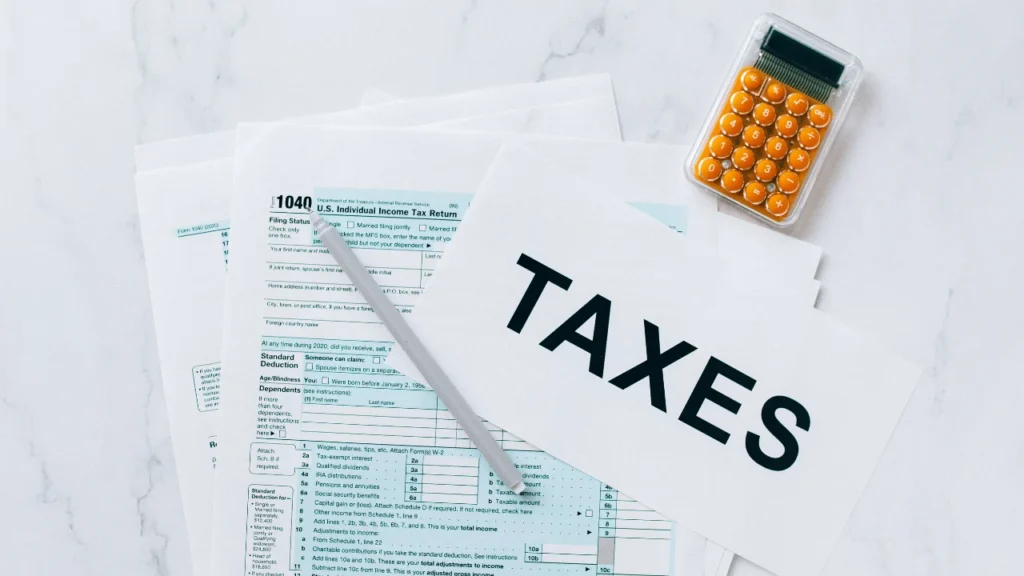There has been a great deal of interest and scrutiny from all over the globe in the world of cryptocurrencies, particularly Bitcoin. Bitcoin and other cryptocurrency taxes in India is a hotly debated subject among regulators, traders, and investors. While we work our way through the complexities of Bitcoin Taxation India, this article will try to clarify the rules as they stand, the effects on investors, and the prospects for digital currency taxes in the future.
Brief Overview of Bitcoin Taxes in India
Cryptocurrencies like Bitcoin are officially known as Virtual Digital Assets (VDAs) in India’s thriving economy. The Indian legal framework’s treatment of these assets is significantly affected by this categorization. In order to bring cryptocurrencies into the official economy and regulate their market efficiently, India has established cryptocurrency-specific tax regulations as of 2024.
Understanding Taxation Framework

Tax on Profits from Cryptocurrencies
There is a hefty 30% tax rate plus an extra 4% health and education cess on profits made from trading Bitcoin and other cryptocurrencies. This rule, detailed in Section 115BBH of the Income Tax Act, highlights the government’s position on crypto trading profits by placing them in a tax bracket similar to winnings from lotteries or game shows.
TDS on Crypto Asset Transfers
When the value of a cryptocurrency transaction exceeds a certain threshold, a new tax called Tax Deducted at Source (TDS) of 1% is applied under Section 194S. This measure is set to take effect on July 1, 2022, with the goal of making crypto transactions more transparent and making it easier to track digital asset transfers nationwide.
VDA Taxation Guidelines
Central to the Indian government’s strategy for regulating the cryptocurrency market are the VDA taxation guidelines. To make sure that investors are aware of their tax responsibilities, these regulations aim to clarify the taxation of digital assets.
Income Tax on Bitcoin Gains
The government’s move to include cryptocurrency profits in taxable income is highlighted by the imposition of income tax on Bitcoin gains. This strategy is in line with the overarching goal of taxing digital assets in the same way as more conventional forms of income.
Cryptocurrency Transaction Tax
Beyond profits and TDS, there are other forms of taxation that apply to cryptocurrency transactions. This document lays out a thorough plan to control the growing cryptocurrency market and bring all of the transactions into the country’s tax system.
Impact on Investors and Traders

Compliance and Reporting Requirements
Investors and traders in cryptocurrencies must comply with the new tax regulations at all costs. To avoid legal trouble and make sure investments are done legally, it’s important to know and follow the reporting requirements.
Strategic Investment Planning
Crypto gains will be subject to a high tax rate, so investors need to plan ahead. Investors should optimize their returns by considering the tax implications of their trades and adjusting their investment strategies accordingly.
Future of Cryptocurrency Taxation
Calls for Reforms and Adjustments
The Indian cryptocurrency community is demanding changes to the country’s high tax rates. Changes to the taxation framework that encourage the expansion of India’s cryptocurrency market may result from these talks.
Adapting to Global Trends
India may also revise its regulations to conform to worldwide norms as the world’s view on cryptocurrency taxes changes. If the country wants to keep its attractiveness as a cryptocurrency investment market, it may need to reevaluate its tax rates, thresholds, and compliance procedures.
Tax Deductions and How to Use Them

Eligibility for Tax Deductions
It is crucial for investors to grasp the intricacies of cryptocurrency trading in order to minimize their taxable income. You can reduce your overall tax liability by deducting some of the costs associated with buying or selling cryptocurrencies, like transaction fees or mining expenses.
Capital Gains and Losses
Important to consider when preparing for taxes is how to handle profits and losses from cryptocurrency transactions. To maximize tax benefits, investors should keep careful records and make calculated decisions in order to offset capital gains with losses from other investments.
Long-term vs. Short-term Capital Gains
Crypto profits may be subject to different tax rates depending on whether they are considered long-term or short-term capital gains. Investors are encouraged to take a more prudent approach to their cryptocurrency holdings by learning about these categories and structuring their transactions appropriately. This can result in significant tax savings.
Crypto Asset Transfer Tax Exemptions
The one percent transaction fee (TDS) may not apply to some cryptocurrency transfers (e.g., those between wallets held by the same person) or to transactions with a value below a certain threshold. Investors can minimize their tax liabilities by planning their transactions with knowledge of these exemptions.
Educational Initiatives and Resources

Government and Regulatory Bodies’ Role
It is imperative that the Indian government and regulatory agencies inform investors of their tax responsibilities when dealing with cryptocurrency transactions. Their goal is to make taxes easier to understand and encourage people to comply with the rules through online resources, webinars, and workshops.
Professional Services
Many investors seek the advice of tax experts in order to make sense of the complicated world of cryptocurrency taxes. In order to make sure that investors are not only in compliance with the tax laws but also maximize their tax positions, it can be helpful to consult with accountants and tax advisors who specialize in cryptocurrency.
Significance of Record-Keeping
Maintaining Detailed Transaction Records
If you want to stay on top of cryptocurrency taxes, you need to keep meticulous records. To ensure accurate tax reporting and compliance, investors should keep meticulous records of all their transactions, including the dates, values, gains, and losses.
Technology for Compliance
New software and tools have been developed to aid investors in staying compliant with their taxes, thanks to advancements in financial technology. For cryptocurrency investors, these platforms streamline tax filing by automatically tracking transactions, calculating gains and losses, and generating reports.
Future Perspectives on Cryptocurrency and Taxation
Technological Innovations and Tax Compliance
Technologies designed to make tax compliance easier will develop in tandem with the cryptocurrency market. It is anticipated that new solutions for tracking and reporting transactions will be offered by innovations in financial technology and blockchain, making it easier for investors to meet their tax obligations.
Global Cooperation and Taxation Policies
The future policies of India will be shaped by how the international community handles the taxation of cryptocurrencies. Cryptocurrency tax standards could be defined and implemented through global cooperation, which could result in more standardized regulations and simplify things for multinational investors.
Role of Community Advocacy
When it comes to cryptocurrency taxes in India, community advocacy is going to be crucial. To foster the expansion of the digital economy, the crypto community should engage in constructive discourse with regulatory agencies and work together to craft equitable and efficient tax policies.
Enhancing the Ecosystem for Digital Assets
Creating a favorable climate for digital assets is the overarching goal of India’s continuing efforts to establish a strong regulatory and taxation framework for cryptocurrencies. If India can find the right mix of regulation and innovation, it can become a major player in the cryptocurrency market, which will bring in investment and push technology forward.
Also Read: Bitcoin Regulations in India: Everything You Should Know
Conclusion
A major step toward formalizing the economic framework for digital assets like Bitcoin and others has been India’s decision to tax them. Investors face difficulties under the current tax regime, but opportunities for stable, regulated growth in the cryptocurrency market also exist. Bitcoin Taxation India in the future could help create a safe, open, and prosperous cryptocurrency ecosystem in India, which is keeping up with the rest of the world when it comes to digital money.

Brandy Stewart, an enchanting wordsmith and seasoned blogger, weaves compelling narratives that transport readers to uncharted territories. Infused with perceptive viewpoints and dynamic storytelling, Doris exhibits a command of language that enthralls both hearts and minds, leaving a lasting mark on the literary panorama.

